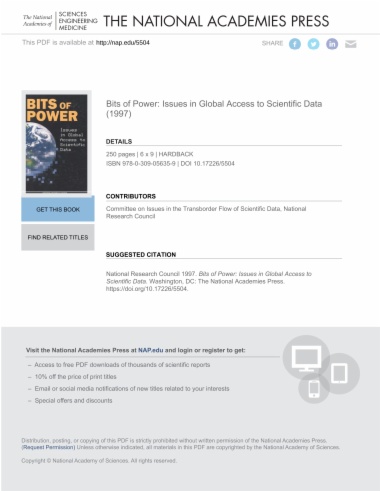

Since Galileo corresponded with Kepler, the community of scientists has become increasingly international. A DNA sequence is as significant to a researcher in Novosibirsk as it is to one in Pasadena. And with the advent of electronic communications technology, these experts can share information within minutes. What are the consequences when more bits of scientific data cross more national borders and do it more swiftly than ever before? Bits of Power assesses the state of international exchange of data in the natural sciences, identifying strengths, weaknesses, and challenges. The committee makes recommendations about access to scientific data derived from public funding. The volume examines:
Bits of Power explores how these issues have been addressed in the European Community and includes examples of successful data transfer activities in the natural sciences. The book will be of interest to scientists and scientific data managers, as well as intellectual property rights attorneys, legislators, government agencies, and international organizations concerned about the electronic flow of scientific data.